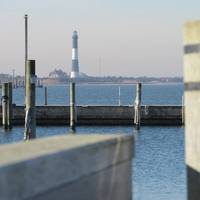Crude Oil

The Benefits of Sustainable Marine Lumber
Today’s marinas are held to a higher standard of environmental stewardship than in the past. No longer are they just responsible for the environmental impacts of their day-to-day operations, but also of their infrastructure and how it affects both the oceans, waterways and their delicate marine ecosystems. For these reasons, many marinas are being far more selective as to construction materials being specified for their expansion and/or restoration projects.One material that is rising to the top for its eco-friendly and performance attributes is sustainable marine lumber.

Ebola Fears Hit the Maritime Market
Brazil, Argentina and the United States have tightened port entry procedures for ships that have sailed from West Africa in a bid to control the potential spread of the deadly Ebola virus. Ebola has killed more than 3,400 people in Guinea, Sierra Leone and Liberia, and its spread has become a global concern -- with worries for trade, which could affect the airline and tourism industries together with seaborne activity. The virus is already threatening to disrupt logistics activity…

Places of Refuge
The concept of force majeure has been broadly accepted since mariners initially encountered the perils of the sea. Persons and governments ashore have been obligated, at least by natural law, to accept and succor those in distress at sea. Concomitant with force majeure is the notion of providing a ship in distress with a place or port of refuge. A place of refuge is where a ship could go to avoid or ameliorate the peril and then depart at the earliest opportunity. While the original need for force majeure and a place of refuge was to reduce the risk to the lives of those on board the ship…

Shipping Operating Costs Rise 2.1%
The findings are set out in OpCost 2012, Moore Stephens’ unique ship operating costs benchmarking tool, which reveals that total operating costs for the three main tonnage sectors covered – bulkers, tankers and container ships – were all up in 2011, the financial year covered by the survey. Both the bulker and tanker indices increased by 3 index points (or 1.7 per cent) on a year-on-year basis, while the container ship index (with a 2002 base year, as opposed to 2000 for the other two vessel classes) was up 5 index points, or 3.1 per cent.
